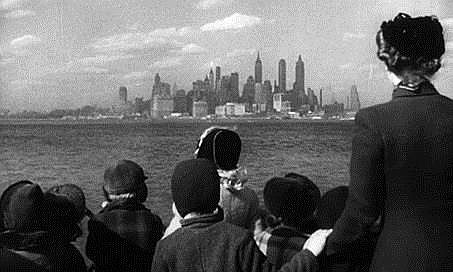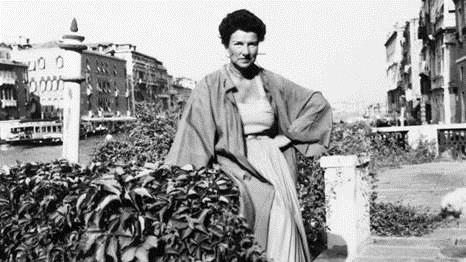If you go
* What: Jewish Documentary Film Series* Where: Jewish Cultural Center, 5461 N. Terrace Road* When: All showings at 7 p.m. Wednesdays* Admission: $7, includes a drink and popcorn* Information: 493-0270
Series Films:
Nov. 30 — “Projections of America”Dec. 7 — “Peggy Guggenheim: Art Addict”Dec. 14 — “Morganthau”
Choosing the films for the Jewish Documentary Film Series' third year, one goal was to find movies that showcase Jewish people who had contributed to America.
"The theme has to do with contributing to the American dream and these films feature three Jewish families, though one is more about an industry," says film series Chairman Sanford Winer.
But they also wanted to pick the three best films they could find and Winer is confident they hit that mark, too.
The first film in the series, "Projections of America," focuses on propaganda films produced by the U.S. Office of War Information's Overseas Motion Picture Bureau during World War II. As American soldiers began to occupy European cities and countries during the war, the short films were used to educate foreign citizens about American life, according to Amy Litton, the film's editor.
"They were only shown overseas, and they were used to give the countries we were ready to occupy a sense of who we were," she says. "They thought we were all either cowboys or gangsters."
The films, which have been stored in the Library of Congress for the last six decades and never shown in the U.S., give an idealistic vision of America, she acknowledges.
"All are positive but, at the same time, some give a racially integrated view of things at a time when the armies were not racially integrated," Litton says. "They are more of the filmmakers' view of what they wanted it to be."
In all, the filmmakers, led by Academy-Award-winning screenwriter Robert Riskin, who wrote the Frank Capra films "It Happened One Night and "Mr. Deeds Goes to Town," created 26 short documentaries about American life.
From Hollywood, director Josef von Sternberg, actor/director John Houseman and screenwriter, film director and producer Philip Dunne as well as documentary filmmakers Willard Van Dyke, Alexander Hammid and Henwar Rodakiewicz created some of the shorts, which looked at everything from challenges faced in holding a democratic election to the guys who washed the windows at the Empire State Building to examining how the war effort impacted ordinary Americans in towns around the country.
One of the shorts, "Autobiography of a Jeep," will be shown as part of the opening night screening. Litton will answer questions following the documentary.
The second film in the series is "Peggy Guggenheim: Art Addict," which highlights the life of the colorful heiress to the Guggenheim fortune. Her wealth and connections to the early pioneers of the modern art movement helped her create one of the world's best and most valuable collections of 20th century art, according to Winer.
The third film, "Morgenthau," is the story of three generations of one of the more influential families in the U.S. It follows Henry Morgenthau Sr. who, under President Woodrow Wilson, was U.S. ambassador to the Ottoman Empire, whose center at the time was Turkey and spread into what is now Iran, Iraq, Syria, Israel, Jordan and the western coast of Saudi Arabia. Morgenthau exposed the Ottoman genocide that killed 1.5 million Armenians between 1915 and 1923.
His son, Henry Morgenthau Jr., was U.S. Secretary of the Treasury under President Franklin D. Roosevelt and played a major role in designing and financing FDR's New Deal and later the financing of World War II.
Henry Jr.'s son, Robert M. Morgenthau, was district attorney for New York County (Manhatten) 30 years beginning in 1975. He was renowned for his fight against "white-collar crime" by business or government professionals.
Contact Barry Courter at bcourter@timesfreepress.com or 423-757-6354.

